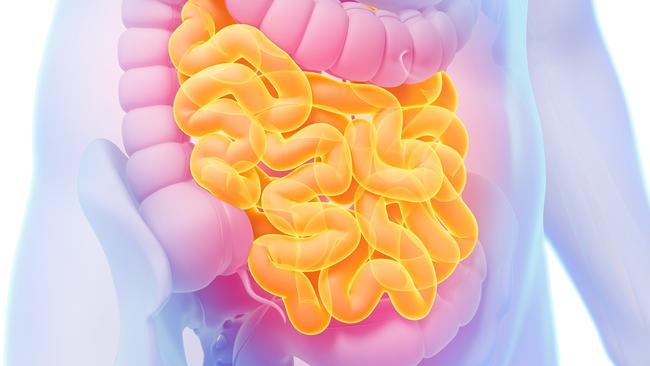This is the best way possible to maintain good gut health
Evidence tells us the most important way to keep our bowels healthy is through a diet rich in natural fibre. But we need the genes in gut microbes to make that fibre work for us.

Keeping your gut healthy may be one of the most important things you can do for your health overall. Scientific evidence continues to build about the beneficial effects of gut health on everything from obesity to mental health conditions. As a medical researcher I’m sold on the idea of having healthy bowels.
The dilemma I’m facing, like many people, is how exactly to ensure my intestines are as healthy as possible. Does the latest science back up my gut feelings about this? I want to take you through what the most cutting-edge research tells us about keeping our bowels in tip-top shape.
As with most things related to health, though, there are rewards and challenges in following the science. The main challenge is that the steps necessary will need to be lifelong – there’s no one-off fix. The rewards are likely to be numerous, though, and for some people life changing. If we’re making health changes that require a lifelong commitment, it’s important to understand exactly what the health issues are.
Knowledge about the link between the bowels and general health dates back to the ancient Greeks. The saying “all disease begins in the gut” is attributed to Hippocrates. Although that’s not exactly true, it certainly is a good place to start. Changes in the composition of microbes and chemical processes in our intestines play roles in cancer, diabetes, high blood pressure, obesity, anxiety and depression, among other diseases.
Our intestinal tract – from stomach to rectum – is home to one of the most complex biological ecosystems on the planet. The number of microbes living in our gut is about 10 times greater than the number of cells that make up the human body. To add to this diversity, while human cells have about 25,000 genes it’s estimated that the total number of genes in gut organisms is more than three million. Each of these can respond to different conditions and disease states, giving us enormous reserve.
The micro-organisms in our gut also are location specific – different groups of microbes are specific to different areas. It now seems that humans acquire these bacteria during time in the womb in pregnancy, with a huge boost provided to children by prolonged breastfeeding.
The complex populations of gut microbes tend to live in a delicate balance, but they are vulnerable and fragile. Recent research from Scandinavian countries has shown that even short courses of antibiotics can alter for years afterwards the types of bacteria – both beneficial and harmful – that live in our gut. We need to look after them.

Let’s start with one of the most common health problems across our community – overweight and obesity. There now is abundant scientific evidence that gut microbes affect the digestion of food and how energy – calories – is absorbed into and stored in our bodies. Importantly, gut microbes also appear to have powerful effects on our appetite and whether we feel full after meals and stop eating.
Obesity is one of the key risk factors for diabetes, a chronic health problem that threatens to overwhelm our health system. However, even beyond the direct effects that carrying too much body fat has on the risk of diabetes, gut health seems to have direct effects separate to obesity. New research has linked the genes found in gut microbes to development of diabetes.
We now have good reason to suspect that unhealthy gut microbes are associated with mental health conditions. Our bowels are richly supplied with nerves that send signals directly to our brains. There is strong evidence that microbes, through the chemical processes they perform, affect the function of these nerves in what has been termed the gut-brain axis. Scientists are examining links to other brain conditions such as Parkinson’s disease and even brain tumours.
Gut health is a critical determinant of important and common health problems, so ensuring we have the healthiest possible intestines should be a high health priority for all of us.
How, exactly, can we achieve good gut health? The evidence tells us the single most important way we can keep our bowels healthy is through a diet rich in natural fibre. Because the fibre in foods we eat can’t be broken down by the products of our own genes, we need the genes in gut microbes to do that job for us.

The enzymes produced by microbes in a healthy bowel break down the fibre we eat into special types of healthy fatty acids. These fatty acids have beneficial effects on the way our body handles sugars and fats, keeping us healthier and warding off diabetes and obesity. They play a role in making us feel full and controlling the urge to overeat.
Different types of bacteria live on different types of fibre. The key to good gut health, then, is having a diverse and rich population of microbes all thriving in our intestines. The less diversity in our gut bacteria, the likelier we are to fall victim to conditions such as obesity, diabetes, cardiovascular and mental health problems.
Highly processed foods have little or no fibre and promote an unhealthy gut. Using probiotics may help a little, but the best way to have a healthy gut is by eating lots of fibre-rich foods, consuming them every day and for our whole lives. These foods include vegetables such as carrots, corn and broccoli, and fruits such as apples and citrus. Legumes – lentils, kidney beans and split peas – also are rich in fibre. Ancient grains, seeds and nuts such as almonds are healthy sources.
Ancient Greek physicians lived by the aphorism “let food be thy medicine”. Speaking as a modern medical scientist, I couldn’t agree more. Making a commitment to eating lots of foods rich in dietary fibre is the best possible way of maintaining good gut health – and good health in general.
Steve Robson is professor of obstetrics and gynaecology at the Australian National University and former president of the Australian Medical Association.
This column is published for information purposes only. It is not intended to be used as medical advice and should not be relied on as a substitute for independent professional advice about your personal health or a medical condition from your doctor or other qualified health professional.





To join the conversation, please log in. Don't have an account? Register
Join the conversation, you are commenting as Logout